Two Jailed Top Science Students Say ‘Iran Will Be Freed’
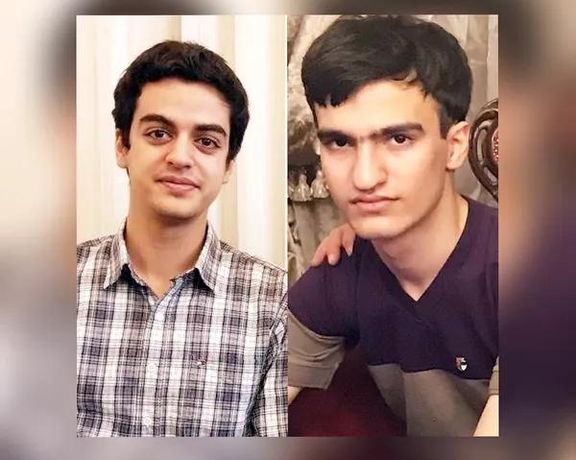
In a message from Tehran’s notorious Evin prison, two Iranian imprisoned award-winning students emphasized that a free Iran will be realized.

In a message from Tehran’s notorious Evin prison, two Iranian imprisoned award-winning students emphasized that a free Iran will be realized.
In a letter published on the occasion of the third anniversary of their detention on social media, Ali Younesi and Amir Hossein Moradi said "After the sufferings and hardships of these years, we are sure of the arrival of moments of true happiness … and the realization of a free Iran."
Political prisoners in Iran often find ways to send messages from prison using connections through other detainees.
"Like all the young people who were killed in the streets, we have no desire but the freedom of Iran," they added.
The two Sharif University award-winning science students were arrested April 2020, Amnesty International reported at the time, with a judiciary spokesman announcing explosive devices had been found in their homes and that they had links to “counter-revolutionary groups.”
“The authorities violated their right to be presumed innocent by publicly accusing them of ties to ‘counterrevolutionary’ groups apparently based on their families’ real or perceived association” with the opposition group MEK, Amnesty wrote in November 2021.
Moradi and Younesi had been convicted of ‘corruption on earth’ and ‘conspiracy against the [political] system.’
In a letter January, several Nobel Laureates and leading academics asked United Nations Secretary-General Antonio Guterres and Human Rights High Commissioner Michelle Bachelet to petition Iran over Moradi and Younesi.
Younesi won the gold medal in the International Astronomy Olympiad in 2018 in China, and Moradi was an award-winning physics student.
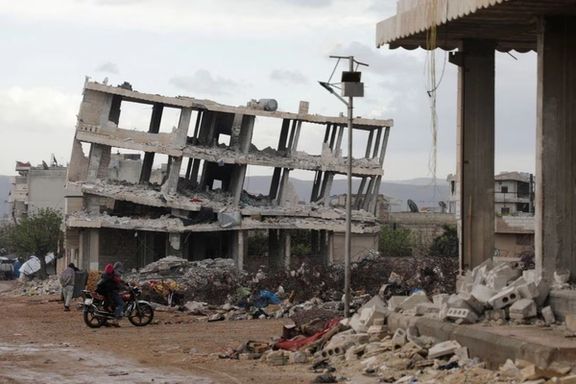
Iran continues to use the opportunity of earthquake relief to smuggle weapons and military equipment into Syria.
As regional tensions escalate, including attacks on US and facilities in Syria and rockets launched from both Lebanon and Syria by Iranian proxies into Israel, activities in Syria are ramping up.
The fact that humanitarian relief is not subject to sanctions, makes it all the more easy for Iran to capitalize on the catastrophe, in the region where Tehran’s influence has been on the rise since it began supporting Assad in the civil war that began in 2011.
Syria has become a key battleground between Iran and its enemies, as Iran buttresses the threat from Israel and strengthens the Assad regime. Strikes in recent weeks from Israel have seen key Iranian military figures killed from the Revolutionary Guards and Quds Force, including targeting weapons factories and infrastructure in Iran.
Israel, which has vowed to stop Iranian entrenchment in Syria, has carried out hundreds of strikes in government-controlled parts of that country in recent years, though it rarely acknowledges them.
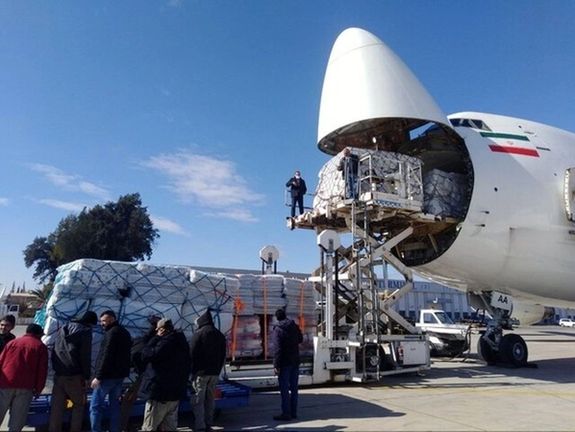
Before the latest strikes which came in retaliation for rockets launched into the Golan Heights, Syrian officials had attributed 10 attacks to Israel this year, some of which put the Damascus and Aleppo airports temporarily out of service and killed civilians as well as Syrian soldiers and Iranian military advisers.
Israel said artillery and drone strikes last weekend hit rocket launchers in Syria and were followed by airstrikes against a Syrian army compound, military radar systems and artillery posts.
Since the February 6 earthquake in northern Syria and Turkey, hundreds of flights from Iran have been landing in Syria's Aleppo, Damascus and Latakia airports bringing supplies. It has opened the door for Iran to build back after a series of strikes from Israel have targeted the likes of munitions factories.
The supplies being smuggled alongside relief goods have, according to intelligence, included advanced communications equipment and radar batteries and spare parts required for a planned upgrade of Syria's Iran-provided air defence system in its civil war.
While Iran's mission to the United Nations in New York said the allegations are untrue, Israel has stepped up efforts to counter the activity, with multiple attacks on airports in the last six months with most aid delivered to Aleppo airport, a major focus of the strikes.
Speaking to Reuters, Brigadier General Yossi Kuperwasser, a former head of research in the Israel army as well as ex-general director of the Ministry of Strategic Affairs said Israeli air strikes against the shipments relied on intelligence so specific that Israel's military knew which truck in a long convoy to target.
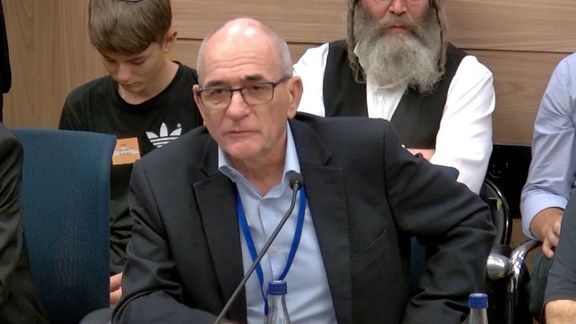
Quds Force is leading the efforts, Unit 18000 Syrian division organising shipments along with the foreign espionage and paramilitary arm of Iran's Revolutionary Guards, led by Hassan Mehdoui (Mahdavi).
Ground transportation was handled by the Quds Force's Transport Unit 190 led by Bahanem Shahariri (Behnam Shahriari), according to intelligence sources speaking to Reuters.
"Israel's strikes also targeted a meeting of commanders of Iranian militias and shipments of electronic chips to upgrade weapons systems," said Syrian military defector Colonel Abduljabbar Akaidi, who retains army contacts. Akaidi did not say where the meeting was held.
Speaking to Reuters, a Syrian army officer who asked not to be named said the Israelis “have information that something is being developed quickly”. The quake created the right conditions and the chaos that ensued allowed Iranian jets to land with ease.
More recently, Israeli strikes have focused on the like of weapons warehouses in the Jabal Manea Kiswa mountain range south of Damascus where Iranian troops and Lebanon's Hezbollah have built what is probably their most fortified military site in Syria.
It is no coincidence, that with Syria being in Iran’s pocket, major regional players are trying to bring Assad in from the cold. From the UAE to Tunisia, diplomatic channels are opening up for the Syrian dictator, which may signal the region’s growing concerns about Syria being Iran’s lapdog.
This also works for Iran. As relations begin to thaw with countries including the UAE and Saudi Arabia, perhaps the region is waking up to the fact that intervention is the only form of prevention of an escalation which is showing no signs of waning.
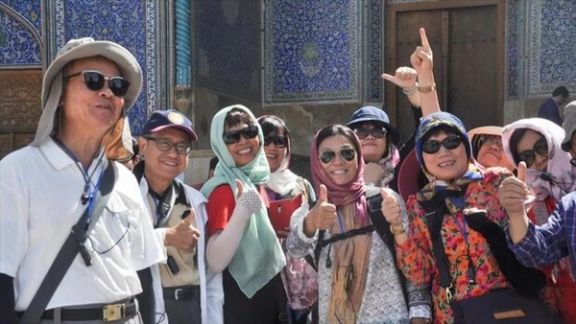
As ties with Iran and China deepen, visas for Chinese tourists have now been waived.
Iran's deputy minister of cultural heritage, tourism and handicrafts, Ali Asghar Shalbafian, made the announcement on Tuesday in a meeting with a number of Chinese tourism delegates.
He said the move aimed to promote tourism between the two nations.
The Chinese delegation traveled to Iran as part of a familiarization tour and met with Shalbafian at the Sa'dabad palace in Tehran.
"In order to boost the attraction of tourists from China, the government of Iran has always been trying to facilitating the entry of visitors, and accordingly, it has voluntarily removed visa for Chinese tourists,” Shalbafian said.
China is considered a key ally for the Islamic Republic of Iran. Last month, Beijing brokered a historic agreement between Tehran and Riyadh to resume long separated diplomatic relations.
Amid arrests of dual nationals with Western passports by the Islamic Republic in recent months, several countries issued warnings to their citizens against traveling to Iran.
Chinese tourism is a huge win for the regime on the back of the global perceptions of the dangers of traveling to Iran, once a much loved tourism destination.
Fearing arrest by Iranian authorities, those foreign tours still operating to the country’s historic sites have been canceled since the protests following the death in custody of Mahsa Amini.
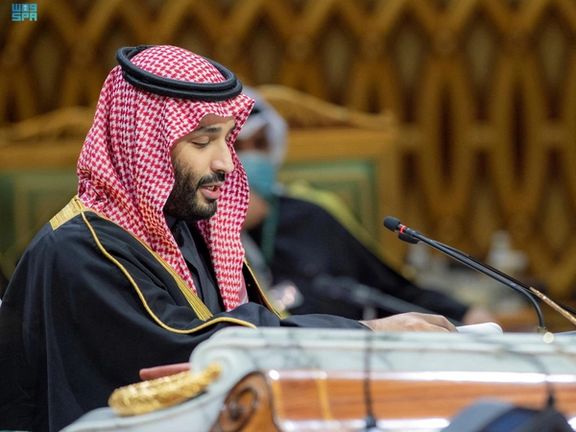
US national security adviser Jake Sullivan spoke with Saudi Arabia's Crown Prince Mohammed bin Salman Tuesday and discussed Iran and Yemen, the White House said.
The call comes after Beijing recently brokered a deal to restore relations between Saudi Arabia and Iran, a process the United States was largely left out of.
The foreign ministers of Iran and Saudi Arabia met in Beijing last week after agreeing to end their diplomatic rift following years of hostility that fueled conflicts across the Middle East.
"Mr. Sullivan and Crown Prince Salman also discussed broader trends toward de-escalation in the region, while underscoring the need to maintain deterrence against threats from Iran and elsewhere. Mr. Sullivan reaffirmed President (Joe) Biden’s unwavering commitment to ensure Iran can never acquire a nuclear weapon," the White House said in a statement late on Tuesday.
Saudi Arabia and Iran, the Gulf’s dominant Sunni Muslim and Shi’ite Muslim powers respectively, have launched arrangements to reopen embassies and consulates within the two-month period stipulated in their deal brokered by China.
Beijing's role was seen by some experts as signaling a loss of influence by the United States with Saudi Arabia, amid tensions between the long-time allies over a range of issues, including human rights and Saudi oil production cuts.
Saudi and Omani delegations held talks with Houthi officials in Yemen's capital Sanaa on Sunday, as Riyadh seeks a permanent ceasefire to end its military involvement in the country's long-running war.
Yemen's war is seen as one of several proxy battles between Iran and Saudi Arabia. The Houthis, aligned with Iran, ousted a Saudi-backed government from Sanaa in late 2014, and have de facto control of north Yemen.
Reuters report
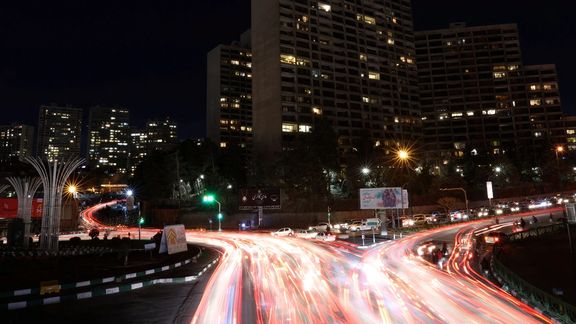
An academic in Iran has accused hardliners of pushing the country toward a civil war and has warned that Iranian should not get used to the smell of blood.
Political scientist Jahanbakhsh Mohebbinia told Rouydad24 website that "Iran is moving in a direction that it would be a surprise if there are no killings in a week or in a month, and this is a dangerous situation for the country."
Speaking about the reasons why the 2022 protests in Iran led to violence, Mohebbinia said Iranian society has been always living with violence in recent decades. For nearly half of a century no one in the government has paid any attention to what the people want and not only those in the government, but everyone else including judges, university lecturers, taxi drivers and so on have always wanted to exercise their authority on the people. This creates an accrued hatred that can lead to an explosion.
The protests showed that the Iranian nation is now reacting to the existing authoritarianism, Mohebbinia argued. The people think the government is playing games with them. The government on the other hand, ignores the world's realities and if we continue this route we are going to end up in a quagmire and collapse. And particularly when the economy collapses, you cannot do anything to save the country.
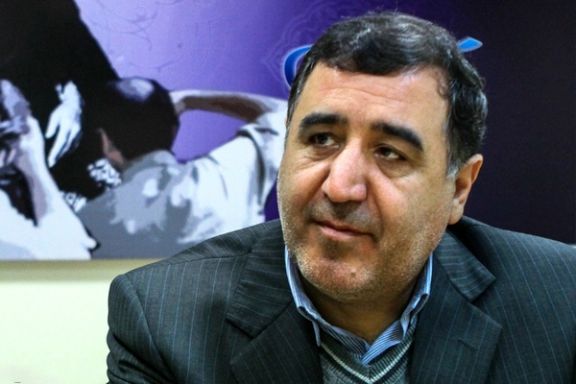
Mohebbinia added that when the government suppresses the protests, the wounds and hatred will be accrued, and the society will never see peace again. "I know that some people were even pushing the country toward a civil war." He advised that the government should hesitate when it thinks of another round of suppression because there is a potential for a civil war.
Many have been warning during recent weeks that the government's insistence on enforcing the compulsory hijab will inevitably bring two parts of the society at a dangerous logger head. He further charged that former US National Security Adviser John Bolton came up with the idea of a civil war in Iran when the government failed to handle the protests wisely. However, the accusation could be the academic's tactic to avoid a reaction by the government. As long as a pundit says something negative about the United States, he can secure a measure of protection for criticizing the government.
Mohebbinia said that the government should not approach the protests in Kurdistan or Khuzestan violently while even the capital Tehran has the potential for starting a civil war, similar to what happened in Yemen and Syria. He warned: "When you fan the fire of insecurity, economic crisis and cultural differences, the country could be divided into ten countries."
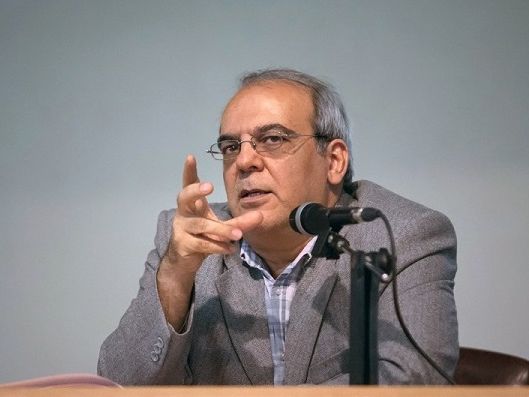
Meanwhile, reformist commentator Abbas Abdi warned that the regime’s zeal to enforce the hijab cannot succeed. "It is undoubtedly impossible to impose religious values by using force or introducing new laws."
Abdi said it is hard for the religious government in Iran to accept that that the people have turned away from religion during recent decades. Abdi probably did not want to mention that it was the mismanagement and inefficiency of the Islamic Republic as a religious government that has annoyed Iranians.
Abdi said that in the absence of real opinion surveys, the government does not admit that religion has lost its power. However, he said that observations show that fewer people in Iran go to mosques or fast during Ramadan or pay their religious 20 percent tax (Khoms). He added that fewer Iranians nowadays give religious names to their children compared even to 10 years ago.

Russia has started exporting gasoline and diesel to Iran by rail this year for the first time since it lost its traditional customers over its invasion of Ukraine.
Citing industry sources and exports data, Reuters said in report on Tuesday that in February and March Moscow supplied up to 30,000 tons of gasoline and diesel to its ally Tehran. Both countries are under Western sanctions that are pushing them closer in order to support their economies and undermine the punitive measures.
Last autumn Russia's Deputy Prime Minister Alexander Novak announced the start of swaping oil products with Iran, but actual shipments only started this year, Reuters sources said. All the volumes were supplied by rail from Russia via Kazakhstan and Turkmenistan.
The report did not say why Iran is importing fuel from Russia, but the more plausible scenarios seem to be one of the following.
The Islamic Republic may need the fuel to be able to maintain its electricity generation and production of petrochemicals. Iran needs natural gas or diesel to run its power stations and refineries and is facing a serious shortage of both.
Another possibility is that Iran’s government or the IRGC are exporting the fuel to other countries. If this is the case, Moscow must have been selling the fuel very cheap leaving a margin of profit for Iran.
One of the Reuters sources said that some gasoline cargoes were sent on from Iran to neighboring states, including Iraq, by truck. This strengthens the speculation about Iran trafficking the gasoline for profit.
The Islamic Republic has been reporting a substantial rise in domestic consumption of gasoline and diesel in recent months. The consumption of fuel in Iran, an oil producer with its own refineries, had exceeded domestic fuel production, especially in its northern provinces, Reuters quoted a trader in Central Asian oil products market as saying.
However, the question is how could consumption increase in a country gripped by high inflation, economic stagnation and rising poverty.
The unprecedented daily gasoline consumption of 144 million liters, repeatedly announced in late March and April, is 50 percent higher than Iran’s average daily consumption in recent years.
This could be an attempt to explain away imports of Russian fuel, while hiding the fact that the cargoes are actually being exported.
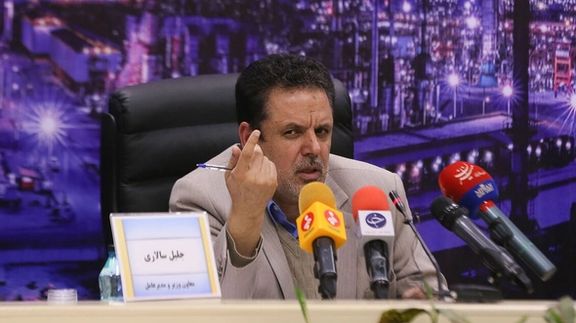
Head of National Iranian Oil Refining and Distribution Company (NIORDC) Jalil Salari said on February 22 that “the gasoline consumption is around 103 to 104 million liters per day, but the figure usually increases during Nowruz (New Year) holidays. However, considering that Nowruz coincides with the fasting month of Ramadan – when Muslims travel less frequently -- there may not be much change in gasoline consumption.”
But in March and April the government narrative changed, claiming a sudden jump to 144 million liters of daily consumption.
Russia had supplied small volumes of fuel to Iran by tanker via the Caspian Sea, as was the case in 2018, two traders familiar with the matter said. According to the report, Russian oil companies are currently interested in exporting diesel and gasoline to Iran by rail as exports by sea face high freight rates and a price cap imposed by the G7 countries.
However, the rail shipments face bottlenecks along the route too, with one of the sources saying that "We expect fuel supplies to Iran to rise this year, but we already see several issues with logistics due to rail congestion. That may keep exports from booming."